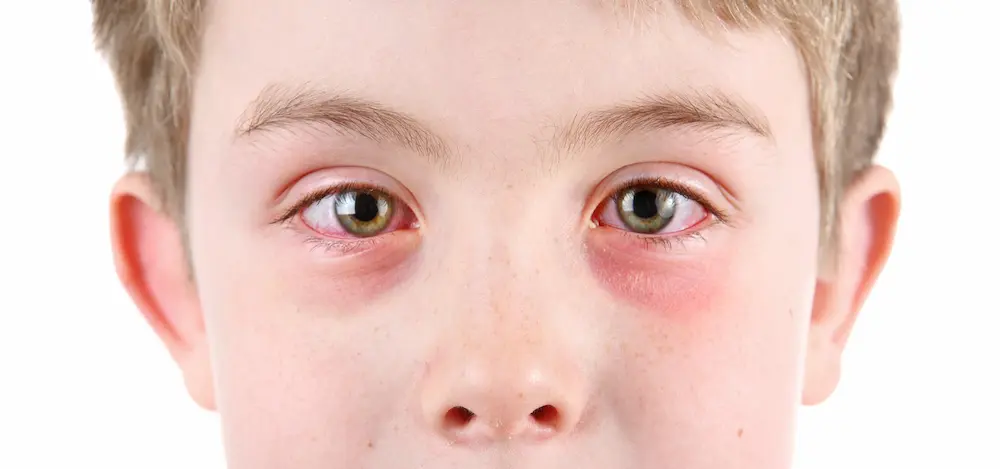In the realm of eye infections, pink eye, or conjunctivitis, is perhaps the most well-known. We’ve all heard of it and may have even experienced it. But is pink eye the only eye infection out there? The short answer is no. While pink eye is a common eye condition, there are several other eye infections that can affect the eye and its surrounding structures. In this article, we will explore various eye infections beyond the pink eye, their symptoms, causes, and how to manage and prevent them.
What is Pink Eye?
Before we dive into other eye infections, let’s briefly understand pink eye. Pink eye, or conjunctivitis, is the inflammation of the conjunctiva, the thin, transparent layer that covers the white part of the eye and lines the inside of the eyelids. Pink eye can be caused by viruses, bacteria, or allergens and often leads to redness, itching, and a discharge from the eye.
Types of Pink Eye
There are three primary types of pink eye:
Viral Pink Eye
Viral conjunctivitis is usually the result of a viral infection, such as the common cold. It exhibits a high level of contagion and can readily be transmitted through contact. Symptoms include redness, watery eyes, and discomfort.
Bacterial Pink Eye
Bacterial pink eye is caused by bacteria and is characterized by a yellow or greenish discharge. It is also contagious and can be treated with antibiotics.
Allergic Pink Eye
Allergic pink eye results from exposure to allergens like pollen, pet dander, or dust mites. It often leads to itching, tearing, and redness.
Other Eye Infections
While pink eye is prevalent, there are several other eye infections you should be aware of:
Conjunctivitis
Conjunctivitis, commonly referred to as pink eye, can be caused by various factors, including viruses, bacteria, or allergies. It leads to redness, itching, and discharge.
Styes
A stye is a small, painful lump that can develop on the eyelid. It is often caused by a blocked oil gland and may appear as a red, swollen bump.
Keratitis
Keratitis is the inflammation of the cornea, the transparent front part of the eye. It can result from infection, injury, or wearing contact lenses for extended periods. Symptoms include eye pain, light sensitivity, and blurred vision.
Blepharitis
Blepharitis is the inflammation of the eyelids, typically caused by a bacterial infection. It leads to red, swollen eyelids and crusty eyelashes.
Symptoms and Causes
Each of these eye infections has its unique set of symptoms and causes. Common symptoms include redness, itching, discharge, and discomfort. The causes can vary from viral and bacterial infections to allergens and external factors.
Diagnosis and Treatment
Diagnosing eye infections often involves a thorough examination by an eye specialist. Treatment may include antibiotics, antiviral medications, or simply managing the symptoms through warm compresses and eye drops. It’s essential to follow the recommended treatment plan to ensure a full recovery.
Prevention
Preventing eye infections involves good hygiene, such as washing your hands regularly, avoiding touching your eyes, and not sharing personal items like towels or eye makeup. If you wear contact lenses, it’s crucial to follow proper cleaning and wearing instructions.
Conclusion
While pink eye is a well-known eye infection, it is not the only one. Other eye infections like styes, keratitis, and blepharitis can also cause discomfort and affect your vision. Understanding the symptoms, causes, and preventive measures for these infections is essential for maintaining good eye health.
FAQs
Can I get pink eye from swimming in a pool?
Yes, you can get pink eye from swimming in a pool, especially if the pool water is contaminated with bacteria or viruses.
How long does it take to recover from a stye?
The recovery time for a stye can vary, but it typically takes about a week or two to fully heal with proper treatment.
Are all eye infections contagious?
No, not all eye infections are contagious. The contagiousness depends on the type of infection and its underlying cause.
Can I wear contact lenses if I have an eye infection?
It is generally not recommended to wear contact lenses while you have an eye infection, as it can worsen the condition and increase the risk of complications.
Are eye infections more common in children?
Eye infections, including pink eye, can affect individuals of all ages, but they are somewhat more common in children due to close contact in school and daycare settings.
What can be confused for pink eye?
There are plenty of eye conditions that have similar symptoms to pink eye. It’s common to mistake allergies, styes, iritis, keratitis, and blepharitis for pink eye, but they can have different causes and require different treatments.
Can pink eye mean something else?
If your eyes are pink or red, it might not be pink eye. Your eyes can only respond to injury, irritation, or infection in so many ways. Allergies or dry eyes can also cause redness or swelling.




